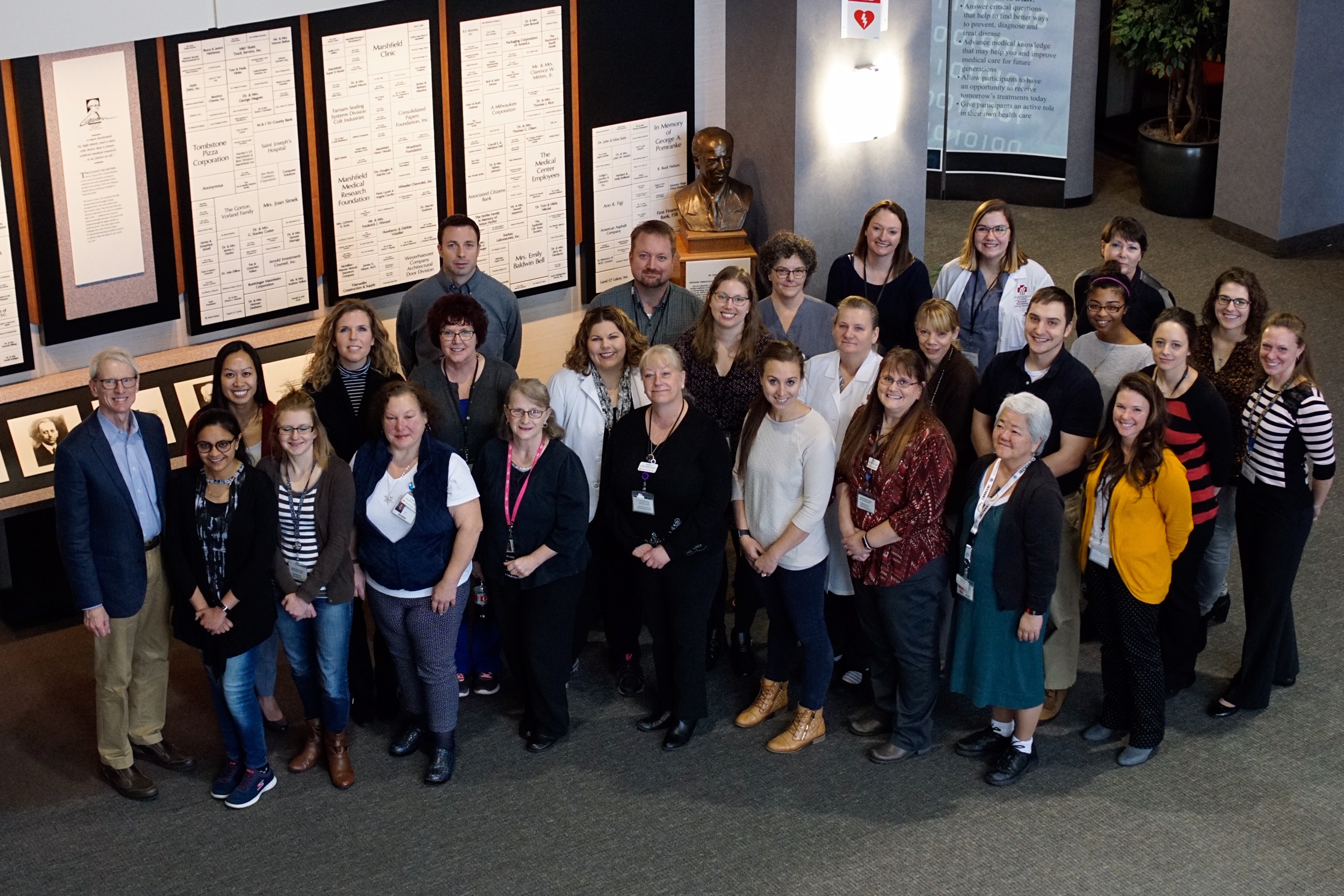Scientists and staff in the Center for Clinical Epidemiology and Population Health (CCEPH) will be conducting several flu-related studies in the 2018-19 season. Last winter, influenza A (H3N2) resulted in approximately 80,000 deaths - the most severe flu season in the past decade. The 2017-18 flu season was the first to be classified as high severity across all age groups, according to the CDC. Vaccine effectiveness was low (24 percent) against the H3N2 strain and much higher against the H1N1 virus (65 percent) and type B (49 percent). Marshfield Clinic study participants, recruited by staff from CCEPH, contributed to these vaccine effectiveness estimates as part of the CDC-funded U.S. Flu Vaccine Effectiveness (VE) Network.
For 2018-19, the U.S. Flu VE Network is expanding enrollment across all sites. Marshfield Clinic will expand enrollment by recruiting patients at two regional centers (Wausau and Weston) in addition to Marshfield. Three additional studies will also be conducted this season by researchers in CCEPH to better understand influenza immunology, vaccine protection and transmission of influenza infection.
A CDC-funded study to compare the immune response in adults who receive cell-based and egg-based flu vaccines is already underway. Participants were randomly assigned to receive one of three licensed flu vaccines, including two vaccines made without use of eggs. Blood samples were collected before and after vaccination and they will be tested at CDC to find out if the antibodies are effective against current flu viruses. Participants will also be monitored during the season to identify flu illnesses. The study is led by Huong McLean, Ph.D., MPH, research scientist at the Research Institute.
In the west region, the Research Institute will conduct an industry-funded study, similar to the CDC-funded U.S. Flu VE Network, to estimate vaccine effectiveness for the cell-cultured vaccine. Patients with respiratory illness will be enrolled in Eau Claire, Lake Hallie, Chippewa Falls and Rice Lake beginning in January.
"Everyone is interested in seeing how well this vaccine protects against the H3N2 viruses, but we don't know yet if this will be an H3N2 season," said Ed Belongia, M.D., local principal investigator for the Flu VE Network.
The Research Institute also is on their second year for the Household Transmission Study to learn more about the spread of the flu in families. This study also is funded by CDC and Dr. McLean is the principal investigator. 
